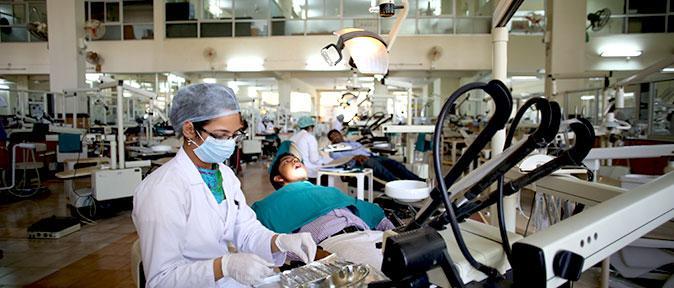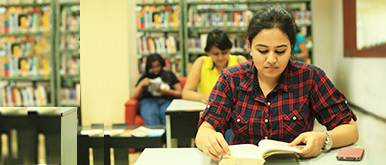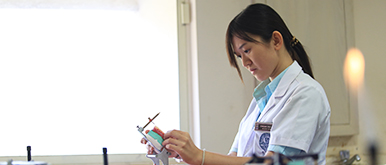Overview
VISION
“TO BE LEADERS IN ORAL HEALTH CARE AT NATIONAL AND INTERNATIONAL LEVEL”
INSTITUTIONAL MISSION
“GLOBAL EXCELLENCE IN DENTAL EDUCATION AND ORAL HEALTH CARE”
The institution has three main goals and objectives, which covers all the aspects for grooming a student into a mature, Knowledgeable, skilful and responsive dentist, ever willing to meet the needs of the patients and society at large. It aims to lay a strong foundation to face the global challenges in the future. The course is designed with an objective to help students pursue a career in general dentistry and specialization thereafter.
A. Knowledge and understanding:
The graduate should acquire the following during the period of training:
- Get equipped with the conceptual knowledge and functional skills required to successfully compete in the rapidly changing technology-oriented world.
- Be able to have a good understanding of various relevant scientific methods as well as principles of biological functions, to evaluate and analyse scientifically various established facts and data.
- Adequate knowledge about the development, structure and function of teeth, mouth and jaws and associated tissues both in health and disease and their relationship and effect on general state of health with bearing on physical and social well being of the patient.
- Ample clinical experience required for general dental practice.
- Expertise to assess the constitution, biological function and behaviour of a person in health and sickness as well as the influence of natural and social environment on the state of health in so far as it affects dentistry.
B. Skills:
A graduate should be able to demonstrate the following skills necessary for the practice of dentistry:
- Able to question and reason out the basic concepts and have the zeal to acquire new knowledge.
- To be able to deliver comprehensive oral health care by achieving expertise in dental education.
- Able to diagnose and manage with confidence, various common dental problems encountered in general dental practice keeping in mind the expectations and the right of society to receive the best possible treatment.
- Acquire the skill and manual dexterity to prevent and manage complications encountered while performing various surgical and other procedures.
- Possess skill to carry out certain investigative procedures and the ability to interpret laboratory findings.
- Promote oral health in inaccessible areas and help to prevent oral diseases, wherever possible.
- Competent in the control of pain and anxiety among the patient during dental treatment.
C. Attitudes:
A graduate should develop, during the training period, the following attitudes:
- Imbibe a sense of community service, by moulding one’s attitude for community oriented programs through rural health camps.
- Seek to improve awareness and provide possible solutions for oral health problems and needs throughout the community.
- Willing to apply the current knowledge of dentistry in the best interest of the patients and the community.
- Maintain a high standard of professional ethics and conduct and apply these in all aspects of professional life.
- Willingness to participate in the Continuing Dental Education (CDE) programs to update their knowledge and professional skills from time to time.
- To help and participate in the implementation of the National Oral Health Policy.
Duration: 4-year academic program and 1 year compulsory rotary internship
The curriculum includes
- Clinical case studies and discussions
- Clinical demonstration
- Phantom head exercises.
- Workshops and seminars.
Career Opportunities
- Clinical Practice
- Further studies/ fellowships
- Master of Dental Surgery and Clinical practice
- Teaching
- Research
- Government administrative services
- Hospital Administration.
Assessment
- Formative and summative assessments are carried out.
- At the end of year II, pre-clinical exercises on phantom head using typodont teeth and viva voce.
- At the end of year IV part II, theory exams include essay type and MCQs. Practical exams include clinical case study, restorations on patients and viva voce.
- Formative assessments in the form of end posting exam at the end of every clinical posting.
The collaboration with local bodies helps in organising dental health camps and serving the community as well as helping students attain social responsibility.
Our research initiatives are driven by industry tie-ups and collaborations with international institutions.
We have collaborations with
- IGNOU
- Colgate Palmolive for research
- Nobel Biocare
- European Dental Students Association
- University of Southern California School of Dentistry
- IALD.
Read more about the history of MCODS, Manipal
Key Dates & Deadlines
'
Last date to Apply
'
Tentative Course Commencement Date
Indian Students Apply
Manipal Academy of Higher Education not only caters to one’s academic needs, but also lays emphasis on all-round development of its students.
International Students Apply
Manipal Academy of Higher Education not only caters to one’s academic needs, but also lays emphasis on all-round development of its students.
Indian Students Apply
Manipal Academy of Higher Education not only caters to one’s academic needs, but also lays emphasis on all-round development of its students.
International Students Apply
Manipal Academy of Higher Education not only caters to one’s academic needs, but also lays emphasis on all-round development of its students.
Facilities

Hospitals
Access to hospital facilities gives student hands-on training in dental procedures

Libraries
Libraries have publications on the latest developments in oral healthcare

Laboratories
Laboratories give students the opportunity for practical experience




